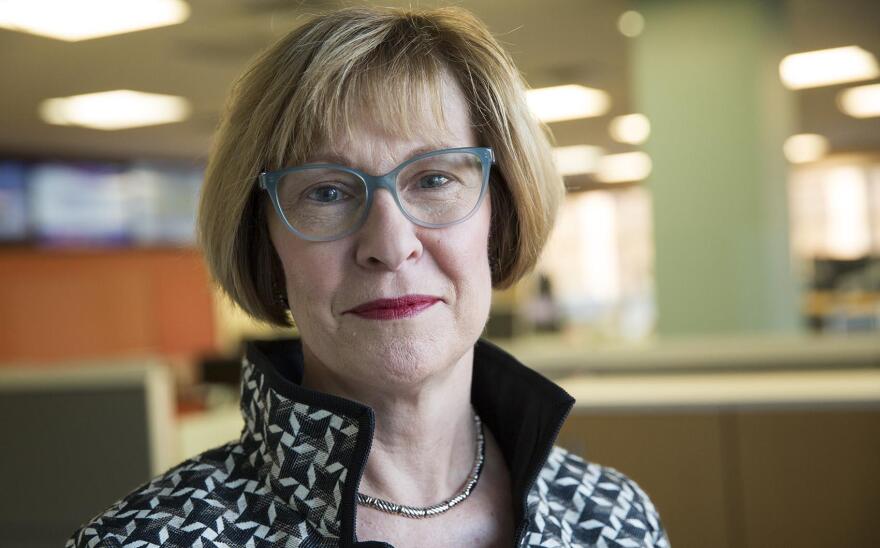Massachusetts Governor Charlie Baker introduced legislation last week to create a statewide system for certifying and tracking police officers in the state. The proposal followed recent demonstrations across the country over the police killings of African Americans.
Massachusetts is one of just four states without such a system for police accountability.
The Massachusetts Black and Latino Legislative Caucus has for several years tried to push related legislation without success. And last November, State Auditor Suzanne Bump released a study calling for a standards and training system for police.
Bump told NEPR that Baker's bill is a good start, but it doesn't address a funding gap for training already required of police.
Suzanne Bump, Massachusetts Auditor: The current state of affairs is that Massachusetts provides limited support. They leave it financially to the cities and towns to make up the difference, and they're terribly overburdened financially.
Therefore, many police officers are not getting all of the requirements that the law requires. And there is no mechanism to make sure that they do, or to provide a penalty to them, or to the police department, if that training is not made available.
Kari Njiiri, NEPR: So what happens? I mean, if the governor's bill just addresses standards and certification, but doesn't address training, how effective would this be?
Well, it's clear that the legislature is going to be looking at this as one element of a more comprehensive response to the phenomenon of police violence, and racial discrimination, in the use of force and other police activities. So I think that though there are only a relative few weeks left in the legislative session, there is a real resolution to put through both branches something more comprehensive. I think that the legislature will build in whatever gaps there may be in what the governor has proposed.

As a former legislator yourself, do you think the chances are good for passing in this legislative session, which ends July 31?
Yes. You know, the legislature works best when it is in crisis, I hate to say. And there is a clear resolve on the part of the Black and Latino Legislative Caucus, and also on the part of the committee chairmen in each respective branch who have been tasked with this.
And clearly, as the gatherings, the peaceful protests that still are occurring, indicate, the public interest in this is not waning. I can't conceive the legislature concluding its work for this year without having acted in a meaningful way on this topic.
Speaking of the peaceful protests following the police killing of George Floyd, you wrote that you had thought or even managed to convince yourself you've been on the right side of the moral equation. But despite good intentions and whatever good you've actually done in the community with your votes, and action as a legislator and state auditor, that hasn't been enough to fulfill "my obligations to my sisters and brothers of color or my country." What did you mean by that, and what do you plan to do?
Well, what it means for me is simply that I need to do more on a personal level, as an employer, and as an elected official who has an ability to impact these issues.
I have been working with the administration and the Caucus to ensure that this passes. That's something I can do as state auditor, as well as bring a more specific focus to some of the work that we do.
We have done work that has pointed out disparities in access to health care and in outcomes. There's certainly greater opportunities for my office to make a contribution as an employer.
And as an individual, it's about raising my voice, maybe calling people's attention, whereas I might have kept my lips sealed when I see an inappropriate behavior or hear an inappropriate remark pass someone's lips. [I] just feel the need to step it all up.






